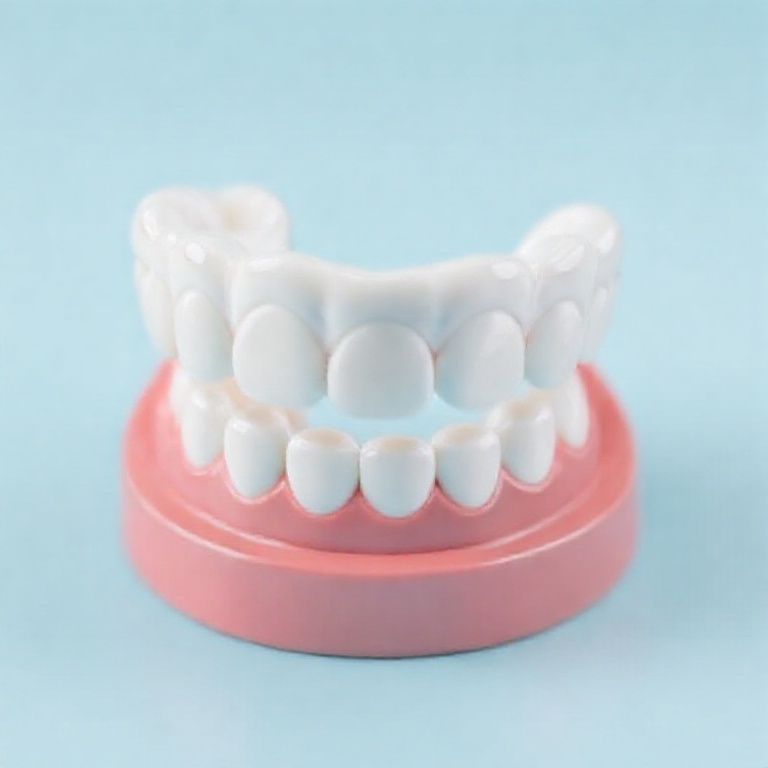Your Smile, Restored: A Comprehensive Guide to Dental Bridge Costs in Ontario
Losing a tooth can be a daunting experience, affecting not just your smile but also your ability to chew and speak effectively. Thankfully, dental bridges offer a reliable and long-lasting solution to restore your missing teeth and regain confidence. But with various bridge types and cost factors at play, navigating the world of dental bridge expenses in Ontario can be overwhelming. This detailed guide empowers you with the knowledge you need to make informed decisions about your dental bridge treatment.

The Enticing Allure of Dental Bridges
Dental bridges are fixed dental restorations that literally bridge the gap created by missing teeth. They consist of artificial teeth (pontics) anchored to healthy teeth on either side of the gap (abutment teeth). These abutment teeth are usually capped with crowns to provide a strong foundation for the bridge. Bridges offer a multitude of benefits, including:
- Improved Aesthetics: Bridges restore a natural-looking smile, boosting your confidence and self-esteem.
- Enhanced Functionality: They allow for proper chewing and speaking, preventing pronunciation difficulties and discomfort while eating.
- Preserving Jawbone Health: Missing teeth can lead to bone deterioration in the jaw. Bridges prevent this by stimulating the jawbone and maintaining its structure.
- Durability and Longevity: With proper care, dental bridges can last for many years, providing a cost-effective solution in the long run.
Understanding the Cost Spectrum of Dental Bridges in Ontario
The cost of a dental bridge in Ontario can vary significantly depending on several factors. Here’s a breakdown of the key influences:
- Type of Bridge: There are three main types of dental bridges:
- Traditional Bridges: These are the most common type, utilizing crowns on the abutment teeth to support the pontic. Their cost typically ranges from $1,500 to $5,000 per tooth.
- Maryland Bridges: These bridges use metal wings bonded to the backside of the abutment teeth instead of crowns. They are generally less expensive, with costs falling between $1,500 and $2,500.
- Implant-Supported Bridges: These bridges offer the most secure and long-lasting solution, utilizing dental implants surgically placed in the jawbone to anchor the pontic(s). However, they are also the most expensive option, ranging from $4,000 to $15,000.
- Material Used: The materials used for the bridge components (crowns and pontics) can impact the cost. Porcelain fused to metal (PFM) is the most common and affordable material, while zirconia offers a more aesthetically pleasing but pricier option.
- Complexity of the Procedure: The number of teeth involved, the condition of the abutment teeth, and any required preparatory procedures (like root canals) can influence the overall cost.
- Dental Professional’s Fees: The dentist’s experience, location of the practice, and overhead costs can also play a role in the final price.
Estimated Dental Bridge Costs in Ontario
| Bridge Type | Cost Range (per tooth) |
|---|---|
| Traditional Bridge | $1,500 – $5,000 |
| Maryland Bridge | $1,500 – $2,500 |
| Implant-Supported Bridge | $4,000 – $15,000 |
Additional Considerations Affecting Dental Bridge Costs
Beyond the core factors mentioned above, here are some additional elements that might influence the overall price:
- Dental Insurance: Many dental insurance plans offer partial coverage for dental bridges. Be sure to check with your provider to understand your specific plan’s coverage and limitations.
- Sedation Dentistry: If you experience anxiety during dental procedures, opting for sedation can add to the cost.
- Lab Fees: The dental laboratory that fabricates the bridge can also have an impact on the final price.
Financing Your Dental Bridge Treatment
The cost of dental bridges can be a significant investment. Here are some ways to manage the financial aspect:
- Dental Insurance: As mentioned earlier, utilizing your dental insurance plan can significantly reduce the out-of-pocket cost.
- Payment Plans: Many dental practices offer flexible payment plans, allowing you to spread the cost over several months.
- Financing Options: Some dental offices or third-party financing companies may offer financing options with manageable monthly payments.
Beyond the Cost: Factors to Consider When Choosing a Dental Bridge
While cost is an important factor, it shouldn’t be the sole deciding element when choosing a dental bridge. Here are some additional points to consider:
- Durability and Longevity: (continued) Discuss the expected lifespan of different bridge types with your dentist. Implant-supported bridges typically offer the longest lifespan, followed by traditional bridges and then Maryland bridges.
- Aesthetics: Consider the material used for the pontic. Porcelain fused to metal (PFM) is strong but may not perfectly mimic the natural tooth color. Zirconia offers a more natural-looking aesthetic but comes at a higher cost.
- Maintenance: All dental bridges require proper oral hygiene practices like brushing, flossing, and regular dental checkups to ensure their longevity.
- Experience and Expertise: Choose a dentist experienced in placing dental bridges, particularly if opting for implant-supported bridges, which require a higher level of surgical expertise.
Getting the Most Out of Your Dental Bridge Consultation
A dental consultation is crucial for understanding your specific situation and determining the most suitable bridge type for you. Here are some tips to get the most out of your consultation:
- Prepare a List of Questions: Ask about the different bridge types, materials, expected costs (including potential additional charges), and the procedure itself.
- Discuss Your Dental History and Concerns: Inform your dentist about any existing dental problems, allergies, or anxieties you may have.
- Inquire About Financing Options: Discuss payment plans, insurance coverage, and any available financing options.
- Seek a Second Opinion (Optional): While not mandatory, getting a second opinion from another dentist can provide additional perspectives and potentially confirm the initial diagnosis and treatment plan.
FAQs: Demystifying Dental Bridge Costs in Ontario
- What is the cheapest option for replacing a missing tooth?
For a single missing tooth, a traditional bridge on adjacent healthy teeth is generally the most affordable option compared to implant-supported bridges or dentures.
- Will my dental insurance cover the entire cost of a dental bridge?
Dental insurance plans typically offer partial coverage for bridges, but the percentage can vary. Contact your provider to understand your specific plan’s coverage details.
- How long does a dental bridge procedure typically take?
The timeframe depends on the type of bridge and the complexity of the case. A traditional bridge placement can usually be completed in two to three appointments, while implant-supported bridges may require more time due to the surgical implant placement.
- How long do dental bridges typically last?
With proper care, dental bridges can last for 5 to 15 years or even longer. Implant-supported bridges generally have the longest lifespan.
- What are the alternatives to dental bridges?
Alternatives to dental bridges include dentures (removable) and dental implants (individual tooth replacements). Discuss these options with your dentist to determine the best solution for your needs.
Conclusion
Dental bridges offer a valuable solution for restoring missing teeth and regaining a complete smile. By understanding the various factors influencing their cost in Ontario, you can make informed decisions about your dental care. Remember, cost shouldn’t be the only consideration. Discuss your options with your dentist to find the bridge type that best suits your individual needs, budget, and desired outcome.
You might also want to check out these articles for more ideas:Dental Bridges in Bangalore


